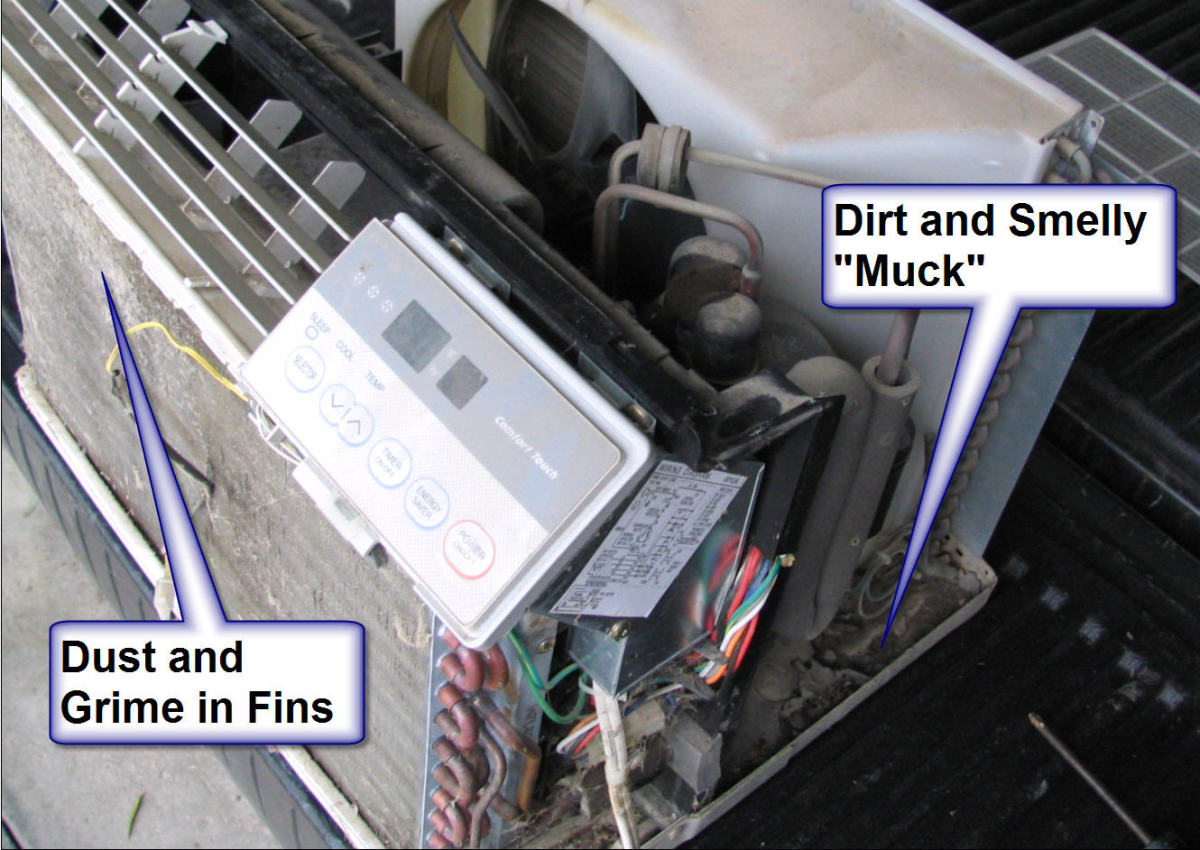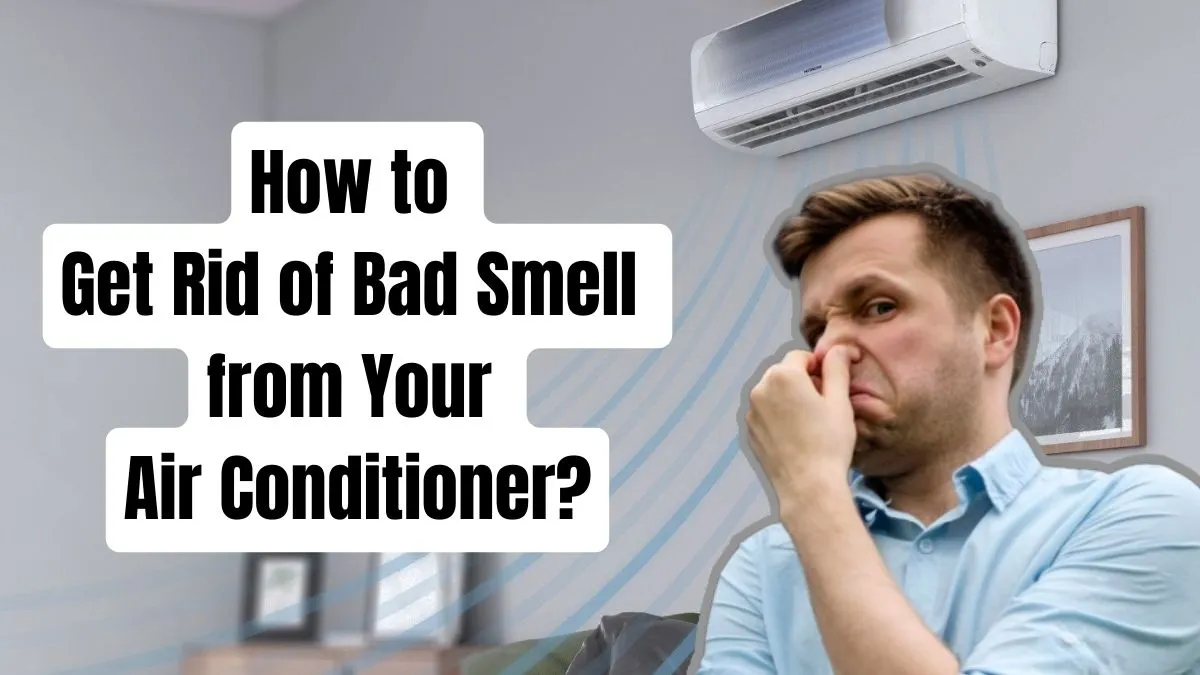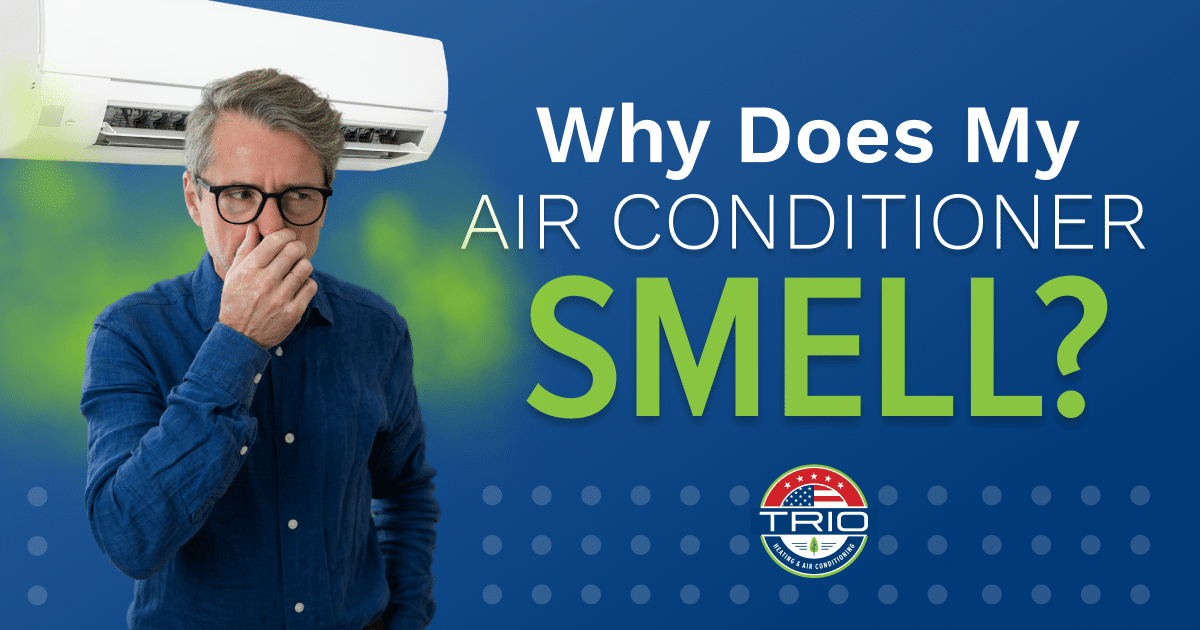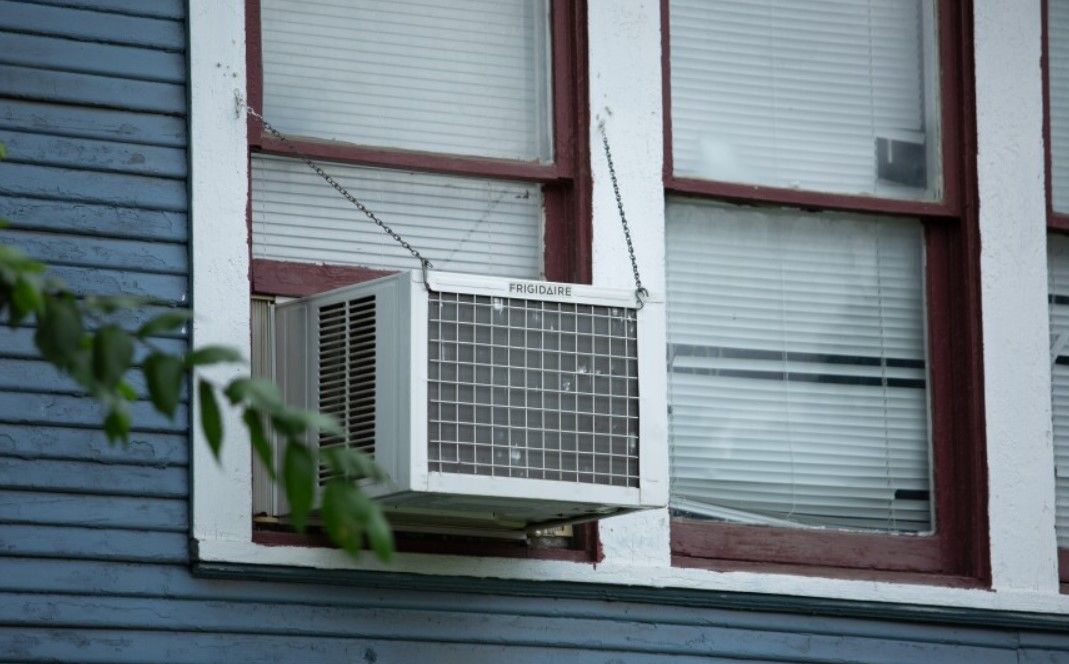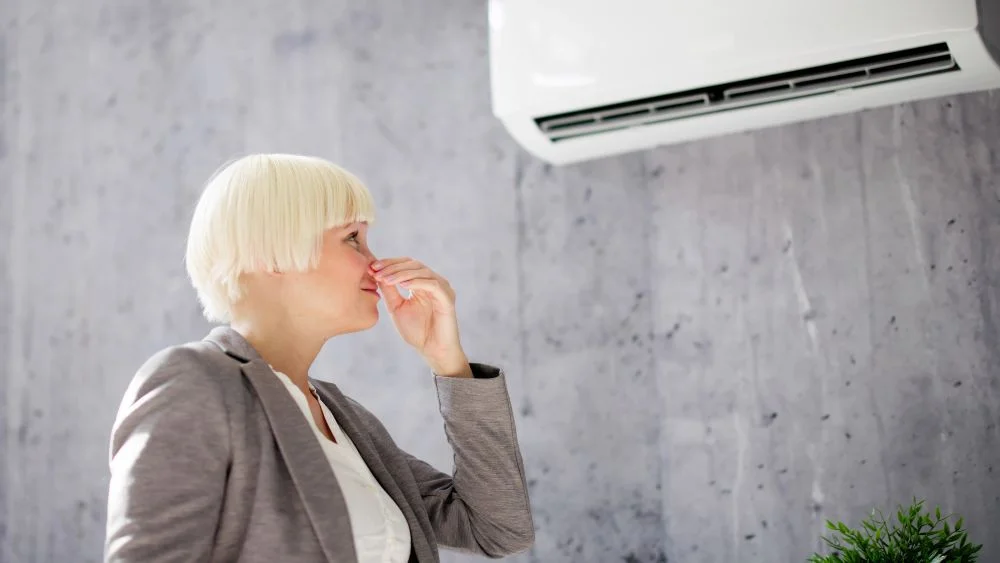Why Does My Window Air Conditioner Smell
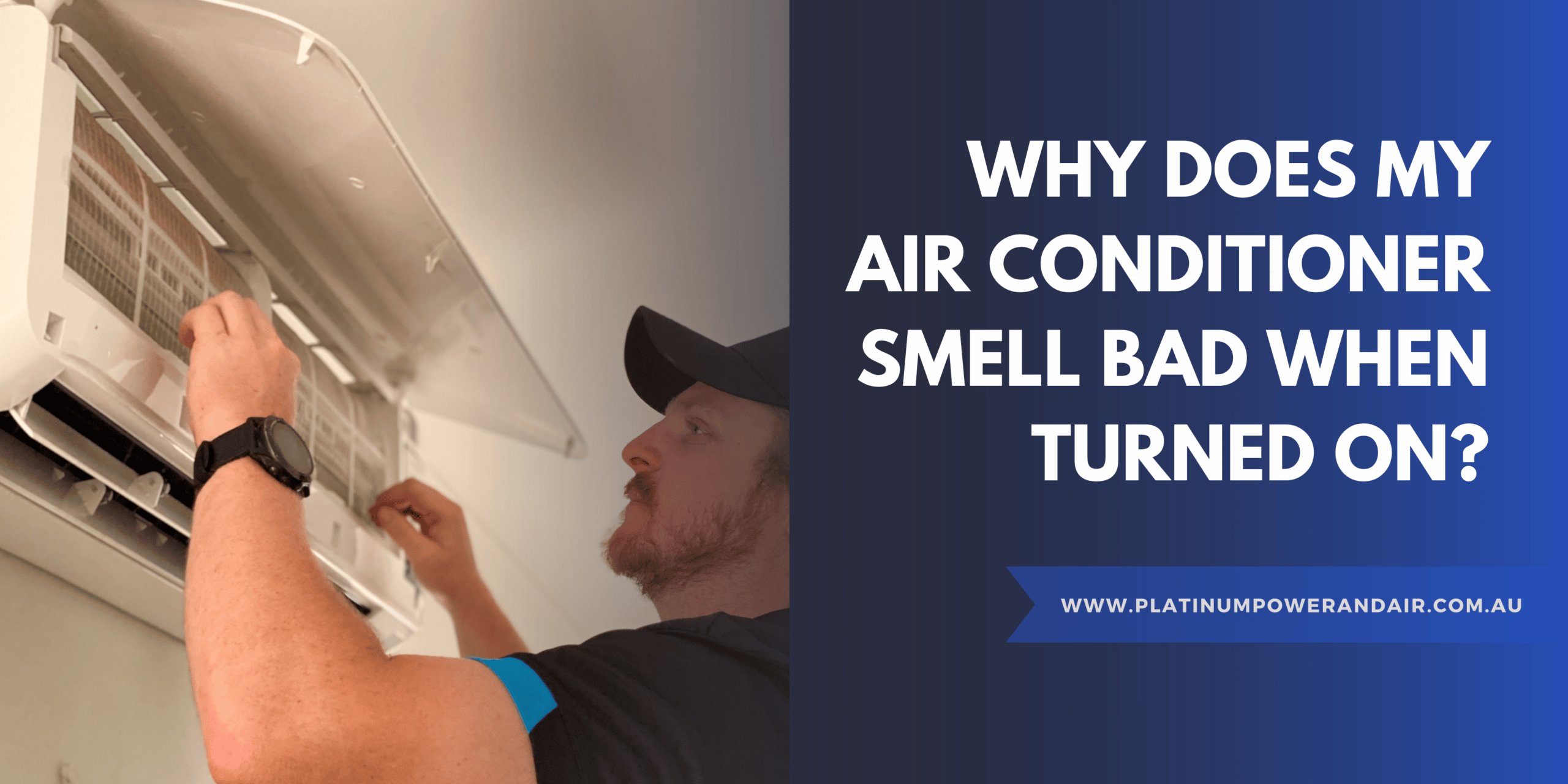
That cool blast of air from your window air conditioner is a welcome relief on a hot day, but what happens when that air comes with an unwelcome odor? A smelly window AC unit is a common problem, but thankfully, often fixable. This guide will walk you through diagnosing and fixing the most common causes of a smelly window air conditioner. We'll cover everything from simple cleaning to more involved repairs, helping you decide when it's a DIY project and when it's time to call in a professional.
Identifying the Source of the Smell
Before diving into solutions, let’s pinpoint the type of smell emanating from your unit. This will help narrow down the cause and save you time.
- Musty or Moldy Smell: This usually indicates mold or mildew growth inside the unit, often in the condensate pan or on the cooling coils.
- Burning Smell: A burning smell is serious and requires immediate attention. It could signify an electrical issue, overheating motor, or burnt components.
- Chemical Smell: This could be refrigerant leaking (though less common in window units) or the breakdown of plastic components due to heat.
- Rotten Egg Smell: While uncommon in AC units themselves, this smell near an AC unit can be a gas leak from another appliance, which can be dangerous.
- Dirty Socks Smell: Bacteria and mold buildup on the evaporator coil is the most common culprit.
Safety First!
Before you start any work on your window AC unit, always disconnect it from the power outlet. This is crucial to prevent electrical shock. If you are uncomfortable working with electrical appliances, contact a qualified HVAC technician. Also, wear gloves when handling potentially dirty components, and a mask is recommended when dealing with mold or mildew.
Tools and Supplies You'll Need
Having the right tools and supplies on hand will make the job easier. Here's a list of common items you might need:
- Screwdriver (Phillips and flathead)
- Vacuum cleaner with hose attachment
- Soft brush or fin comb
- Cleaning solutions:
- Mild soap and water
- Commercial AC coil cleaner
- Vinegar and water solution (for mold)
- Spray bottle
- Gloves
- Face mask
- Towel or rags
- Fin comb (for straightening bent fins)
- Drain pan cleaner tablets (optional)
Common Causes and Solutions
1. Dirty Air Filter
A dirty air filter is the most common cause of odors and reduced performance in window AC units. A clogged filter restricts airflow, allowing dust, pollen, and other particles to accumulate inside the unit, leading to musty or dirty smells.
Solution:
- Locate the air filter. It's usually behind a removable grille on the front of the unit.
- Remove the filter.
- Clean the filter. You can vacuum it, wash it with mild soap and water, or replace it with a new one.
- Allow the filter to dry completely before reinstalling it.
- Replace the filter every 1-3 months, depending on usage and air quality.
2. Mold and Mildew Growth
The moist environment inside a window AC unit is a breeding ground for mold and mildew, which can produce a musty or moldy smell. This often occurs in the condensate pan or on the evaporator coils.
Solution:
- Clean the Condensate Pan:
- Carefully remove the unit from the window (if possible) or tilt it slightly to access the drain pan.
- Remove any standing water in the pan.
- Clean the pan with a solution of vinegar and water (1:1 ratio) or a commercial AC drain pan cleaner.
- Ensure the drain hole is clear and not blocked.
- Consider using drain pan treatment tablets to prevent future mold growth.
- Clean the Evaporator Coils:
- Remove the unit's front panel to access the evaporator coils.
- Use a soft brush or vacuum cleaner with a brush attachment to remove dust and debris.
- Spray the coils with a commercial AC coil cleaner, following the manufacturer's instructions.
- Allow the cleaner to soak for the recommended time.
- Rinse the coils with water if necessary.
- Ensure the coils are completely dry before reassembling the unit.
3. Dirty Evaporator Coils
Even without mold, dust and grime can accumulate on the evaporator coils, leading to a general dirty or stale smell. This can also reduce the unit's efficiency.
Solution: Follow the same steps outlined above for cleaning the evaporator coils under the "Mold and Mildew Growth" section.
4. Debris in the Unit
Leaves, insects, and other debris can get sucked into the unit, especially if the outdoor portion is exposed. This can cause unpleasant odors as the debris decomposes.
Solution:
- Remove the unit from the window (if possible) and inspect the exterior for debris.
- Carefully remove any visible debris from the fins and other components.
- Use a vacuum cleaner with a hose attachment to reach tight spaces.
5. Electrical Issues (Burning Smell)
A burning smell is a serious sign of an electrical problem. It could indicate a faulty motor, damaged wiring, or overheating components.
Solution:
Stop using the unit immediately! Disconnect it from the power outlet and contact a qualified HVAC technician or electrician. Do not attempt to repair electrical components yourself unless you have extensive experience and training.
6. Refrigerant Leak (Chemical Smell)
While less common in window units than in central AC systems, a refrigerant leak can produce a chemical smell. However, the smell might be a decaying plastic component.
Solution:
Refrigerant leaks require specialized tools and knowledge to repair. Contact a qualified HVAC technician to diagnose and fix the leak. **Do not attempt to handle refrigerant yourself.** It is illegal and potentially harmful.
7. Unit Not Draining Properly
If the unit is not draining properly, water can accumulate and stagnate, leading to mold growth and unpleasant odors.
Solution:
- Ensure the unit is properly tilted to allow for drainage. Most window units should have a slight downward slope towards the outside.
- Check the drain hole for any blockages. Use a wire or pipe cleaner to clear any obstructions.
- Clean the condensate pan as described above.
Preventing Future Odors
Here are some tips to help prevent your window AC unit from developing unpleasant odors in the future:
- Regularly clean or replace the air filter.
- Clean the condensate pan and evaporator coils at least once a year.
- Use drain pan treatment tablets to prevent mold growth.
- Keep the area around the unit clean and free of debris.
- Consider using an air purifier in the room to reduce dust and allergens.
- During periods of non-use, cover the unit to prevent dust and debris from entering.
When to Call a Professional
While many window AC unit odor issues can be resolved with DIY cleaning and maintenance, some situations require the expertise of a qualified HVAC technician:
- If you smell a burning odor.
- If you suspect a refrigerant leak.
- If you are uncomfortable working with electrical components.
- If you have tried cleaning the unit and the odor persists.
- If the unit is not cooling properly, in addition to smelling bad.
Estimated Repair Costs
The cost of repairing a smelly window AC unit can vary depending on the problem and the extent of the damage. Here are some rough estimates:
- Air filter replacement: $5 - $20
- Professional AC cleaning: $50 - $150
- Refrigerant leak repair: $150 - $400 (may not be worth it for an older window unit)
- Motor replacement: $100 - $300 (may not be worth it for an older window unit)
- New window AC unit: $150 - $500+ (depending on size and features)
Important Note: These are just estimates. Contact a local HVAC technician for a more accurate quote.
Conclusion
A smelly window air conditioner is an annoying problem, but with a little troubleshooting and cleaning, you can often resolve the issue yourself. By following the steps outlined in this guide, you can identify the source of the smell, clean the affected components, and prevent future odors. Remember to prioritize safety and know when it's time to call in a professional. Keeping your AC unit clean and well-maintained will not only eliminate unpleasant smells but also improve its performance and extend its lifespan. Enjoy the fresh, cool air!
